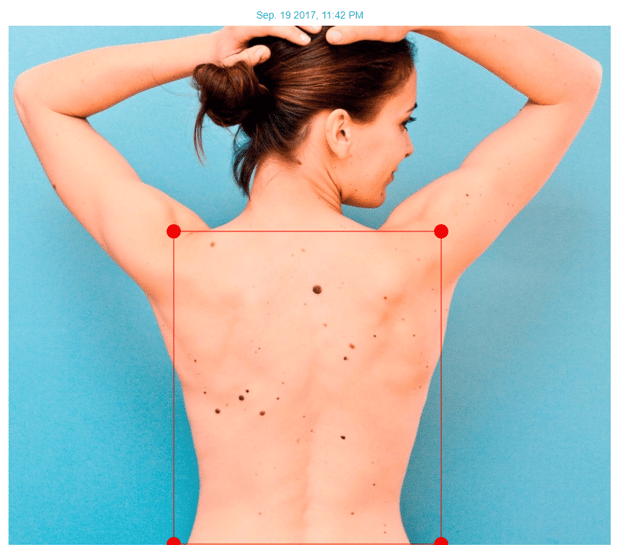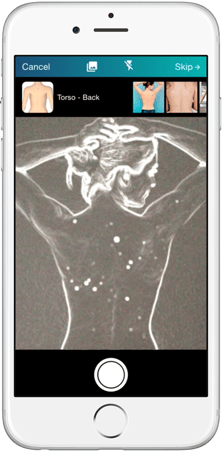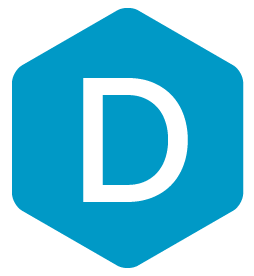Total Body Photography: The Latest Tools Part 1
Total body photography (also known as full body imaging, or total body imaging) has become an area of growing interest in the world of dermatology due to its ability to photograph patients with a large number of spots/moles or those at a greater risk of developing skin cancer.1 Systems such as DermEngine offer intelligent dermatology tools designed to further streamline the imaging process while optimizing image analyses. Part 1 of this article looks to investigate how these features will impact practices and how it can benefit skin cancer early detection.
What are the latest tools in Total Body Photography?
Although full body imaging is demonstrating value in increasing workflow efficiencies for skin examinations, there are a number of problems that this method has not yet solved.
- Simplified image transferal
- Image storage
- Digital patient profiles
- Consistent imaging
- Support in identifying new or changing spots
Total body photography software such as DermEngine provide innovative tools designed to combat these concerns.
MoleMap
In order to provide consistent care, full body imaging software should have the ability to transfer images to a manageable patient account. Otherwise the patient’s segmented body images may be challenging to locate for follow-up image procedures, or are difficult to manually add to the patient’s digital profile.
MoleMap utilizes intelligent algorithms to identify all spots within an image and transfer them directly to a patient’s corresponding 3D Body Map. The purpose of this feature is to streamline imaging times while ensuring that no spots are missed in what is a typically laborious and extensive process for the early detection of skin cancer.
This is extremely valuable as it ensures patients receive quality imaging upon initial visits while being recorded in a centralized, accessible, intuitive location on a body map. Through this process, experts are able to add dermoscopic images to individual spots for detailed reference without getting confused with other similar or closely located spots to optimize patient care.

Intelligent dermatology software such as DermEngine offer a “ghost” template capability, which allows physicians to see a hollow outline of the pose their patient stood in during their previous imaging session to ensure that the newest set of images are as visually similar as possible. This feature ensures a comprehensive imaging session while enabling physicians to be confident that no spots were missed.
An additional benefit of this feature is that it allows non-medical professionals to be trained to use the system. Since DermEngine is designed to work with MoleScope II (a mobile dermoscope), nurses or imaging technicians can simply use their phone with the app to capture standardized positions with ease. This in turn allows the dermatologist to focus on the imaging results to further streamline workflow processes and time management.
ConclusionTotal body photography is proving to be a valuable tool in the world of dermoscopy. Potential methods for enhancing this practice are mole mapping (identification and transfer of spots from an image to a digitized body map through the use of artificial intelligence/AI algorithms) along with template imaging (to use previous patient poses as a template for sequential imaging to ensure near-identical image positions). Part 2 of this article will further investigate how total body imaging software can be enhanced in order to balance concerns such as spot evolution identification through inconsistent medical imaging.
-The MetaOptima Team
Topics: Total Body Photography Intelligent Dermatology Software Full Body Imaging Total Body Photography Software MoleMap MoleMatch





